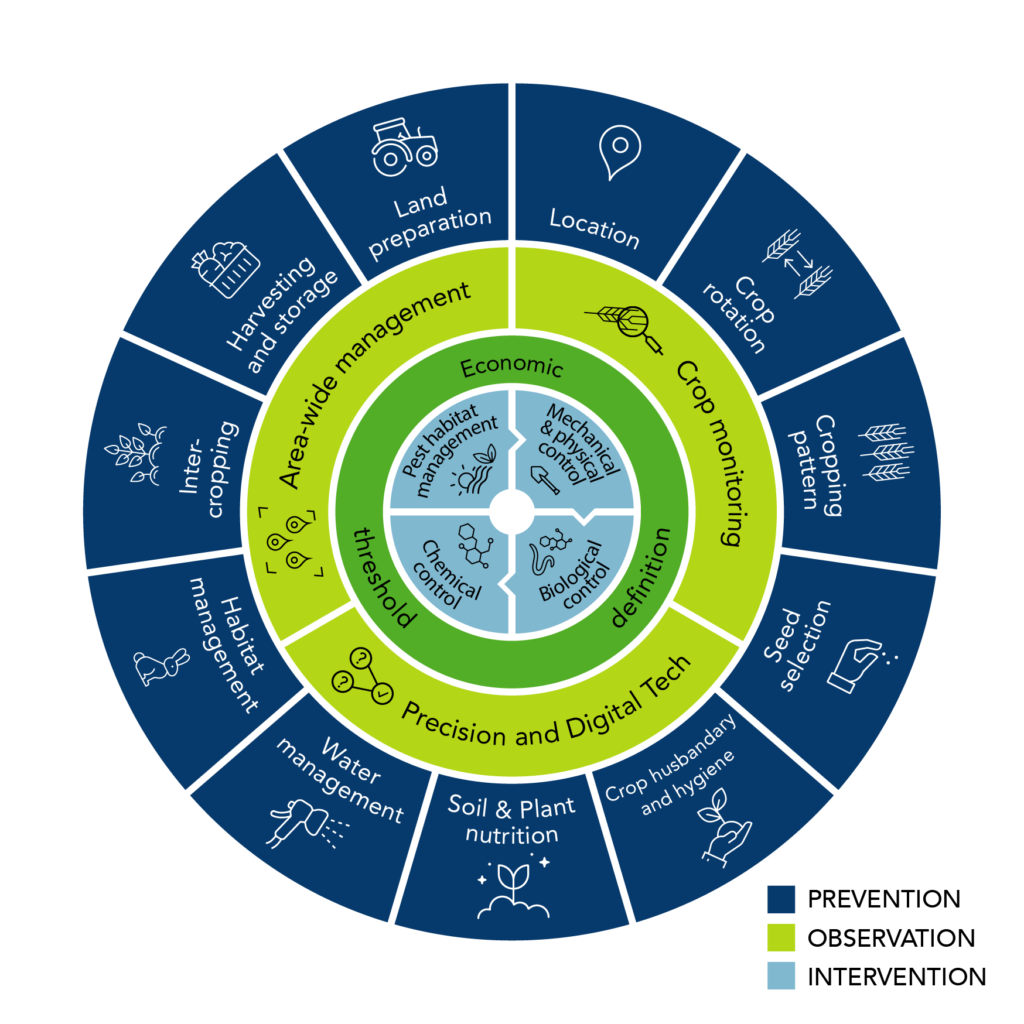We hear the word ‘holistic’ a lot lately. Holistic medicine. Holistic lifestyles. Holistic healing.
Farming, too, is increasingly holistic. The growing approach that uses a variety of methods to control the pests that can harm crops is called Integrated Pest Management (IPM), and the essence of IPM is ensuring a holistic crop protection approach.
IPM was introduced in 2009 under the Sustainable Use Directive and implementation of IPM practices has become an obligation for EU farmers. IPM gives farmers a decision-making framework. Since there is no one-size-fits-all solution to a pest, disease or weed, growers must consider the best combination of cultural, biological and chemical measures to ensure the most cost effective, environmentally sound, and socially acceptable ways of managing pests.
That’s about as holistic as it gets. Successful farmers must keep their plants healthy, and to implement IPM, they work hard to incorporate economic, social and other systems into their day-to-day crop care decisions. When a plant becomes sick, or is threatened by injury, the farmer acts as a doctor, nurturing and protecting their crop from damage.
Like a good doctor, a grower looks at the whole picture:
- Crop care is first about prevention, and selection of the right mix of strategies to prevent pests.
- Next is observation: careful monitoring to detect if threats exist.
- And intervention – which could mean mechanically controlling the crop, or using biological or chemical controls – is the last step.

Prevention is key, and it includes a host of options: crop rotation, selection of resistant seed varieties, and adjusting cropping patterns and intercropping to name a few.
We as an industry fully support the IPM model and that pesticides should only the be used as a last resort. We are innovating and developing products across the entire IPM elements to help farmers.
We call it doing “more with less.” EU farmers practicing IPM operate holistically, using pesticides only as much as necessary and as little as possible – and only when all other strategies have been considered as unviable.